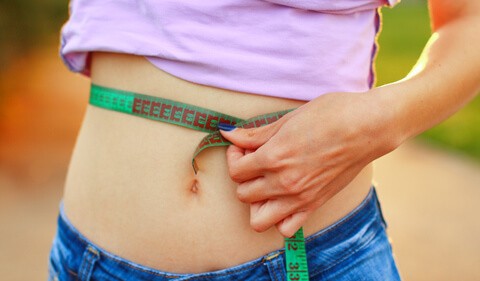Time to break those cravings, gain more energy and gain a slimmer waistline too, wouldn’t you agree?
I learned recently that millions of us actually have issues with fatigue, unhealthy food cravings and extra pounds that we just can’t seem to lose.
Pheeew, so you are not alone, that’s good, right?
For years we have been told that the problem is all in our gut, but now I’m hearing that maybe it’s actually in our mouth. The serious “health destroyer” that could be the root cause for your low energy, food cravings and even unwanted belly fat is called starch tongue.
And here’s the real shocker… if you have starch tongue, food may actually taste different to you then it does to others, leading to cravings for carbs, sweets, and gaining more weight than you should.
Not to worry, here’s the good news; new evidence shows there is not just hope for a solution, there is actually a proven way to STOP the harmful effects of starch tongue once and for all, leading to: no more cravings, more energy and a slimmer waistline ta’boot… and of course best of all, a stronger and healthier body.
Later on here, there is a two minute tongue test to determine if you have starch tongue, and simple method you can use to FIX it, if you do, so keep reading.
There’s nothing more frustrating than to discover that all your hard work in trying to lose weight, has been sabotaged and that is exactly what starch tongue does… it sabotages your efforts to get healthy, making you hungrier and heavier than you actually should be.
Shocking isn’t it, to learn that a lifetime of cravings and failed diets are actually not your fault.
Fortunately, once you learn the one thing that has been holding you back and the simple proven way to fix it… it’s like a major weight is lifted. You will find that it is easier to eat less, your waistline slims, and you will literally feel lighter.
Wouldn’t it be nice to live longer and be healthier and happier as you age?
Looking slimmer and being more confident is of course a welcome side effect.
Why is it that some people can control cravings yet for some of us it is next to impossible?
It all comes down to willpower… REALLY?
The secret is, it is NOT for a lack of willpower… not at all.
What is Starch Tongue?
What does starch tongue have to do with food cravings, weight gain and even your potential lifespan? And, most of all, how do you know if you have it?
Starch tongue is what is called a new condition with debilitating results; that the taste buds on your tongue are actually programmed to detect and become addicted to carbohydrates, also known as carbs or starches.
Now, usually when we hear about carbs its bad news because we are following a diet where we cannot eat them.
Well, here is some great news for you… the secret to a slimmer body does not involve giving up carbs.
It all begins in your mouth. ![Genusfotografen (genusfotografen.se) & Wikimedia Sverige (wikimedia.se) [CC BY-SA 4.0 (https://creativecommons.org/licenses/by-sa/4.0) or CC BY-SA 4.0 (https://creativecommons.org/licenses/by-sa/4.0)], via Wikimedia Commons](https://trishparr.com/wp-content/uploads/2018/09/no-more-cravings-more-energy-and-slimmer-waistline-image01.png)
In 2009, a fifth type of taste bud was discovered that detects what researchers call umami… a taste that scientists described as being savory or meaty. It is believed to be in the centre of the tongue.
For most of the last decade, all research indicated that is where the list would stop, with these five types of taste buds.
Only recently, researchers are saying that they have discovered a sixth type of taste bud, and that this taste bud detects one specific thing… carbs.
This was a big deal, because for years experts thought carbs were just being detected by out sweet taste buds.
However in 2016, researchers at Oregon State University conducted a clinical trial where volunteers were given a liquid carb formula which had no taste at all, and asked what it tasted like. They also individually neutralized the user’s sweet taste buds, meaning they should not have been able to detect anything if what was believed before to be true. Yet, many of these users could accurately describe the taste in their mouth, which they said tasted like “rice” or “starchy”.
In other words, their tongues could sense carbs the second a drop hit their mouths.
These results have now been confirmed in multiple studies at several of the top labs in the world. It turns out that all human beings have evolved to have these carb sensors, right on our tongues.
This makes sense when you think about it. You see, carbs were the number one source of energy for our ancestors. In fact, they are still the number one source of energy for all of us human beings today.
Your body gets “powered” more by carbs than by any other type of food… that’s more than protein, and more than even fats.
So, it really does make sense that our ancestors would have evolved special ways to detect carbs. Carbs are so important that our bodies needed to be programmed to eat them whenever they came across our tongue.
Does that mean everyone has starch tongue?
Actually… no.
Here is the interesting part. While we all have these carb-sensing taste buds, we don’t all have the same amount of taste buds. This is very important to understand. Starch tongue is used to describe people who have an abundance of “carb receptor” taste buds.
The average human has between 2,000 and 8,000 taste buds on our tongue, but we do not all have the same ratio of taste buds.
From a scientific perspective, the reason for us each tasting foods differently is because we have different amounts of the different taste buds on our tongues, meaning we have different levels of enjoyment when we eat food.
Now many doctors realize that the exact same thing is happening with carbs.
Unfortunately, the effects of this are much more serious. People with an over active preference for carbs are shown to have stronger food cravings, especially for starchy foods like bread, rice, pasta, potatoes, tortillas, chips, and many types of deserts.
People with these taste buds are also shown in multiple clinical trials to be predisposed to gaining weight, sometimes a LOT of weight. This is a big concern for any doctor. Weight gain, especially belly fat is correlated with increased risk of diabetes, pre-diabetes, heart disease, stroke, and even cancer.
All of these conditions lead not just to pain and physical changes to your body, but actually shorten your lifespan.
BOTTOM LINE – more weight = less health
However, there is GOOD news!
If you have starch tongue it is likely that your issues with carvings, weight gain, and health are not your fault. Even better, we now know a way to STOP these symptoms.
When you put an end to starch 
You will find that you have a LOT more energy too because your body is finally working right.
Best of all, you can get your confidence back and go back to loving to socialize with your friends and family, because you are proud of yourself again, the way you should be.
Now, let’s determine if (like me) you are one of the millions of Americans suffering from starch tongue, and if so, how you can stop these frustrating symptoms, once and for all.
As I promised you earlier, here are five questions to determine the amount of carb sensing taste buds that you may have on your tongue. While this is not an exact science, these questions actually can measure your individual carb receptors almost as well as if your taste buds were examined under a microscope.
Keep track of how many times you answer with “yes” to the following questions.
- Do you like fried chicken more than grilled chicken?
- Do you sometimes keep snacking on things like chips or popcorn, even after you have decided you are not hungry anymore?
- Do you like corn and potatoes more than kale and celery?
- Have you ever eaten so much that you felt sick?
- When you are tired or upset, do you feel an unusually urge to eat “comfort” foods?
If you answered “yes” to two or more of the questions, you may be one of millions of people currently living with starch tongue. And, if you answered “yes” to three or more of the questions, you may have been living with starch tongue for your entire life and not even know it.
So, if you have starch tongue, what can you do about it?
We cannot forcefully change our taste buds, and taste buds do change naturally as we age, but most research show that cravings for carbs actually get worse as we age, not better. That is because as we get older, taste buds deteriorate, meaning we actually need more flavour, more salty, more sweet, and starchy tastes just to make food taste normal.
So, how is it that Japanese people can eat tons of carbs and still be so slim?
They eat white rice with nearly every meal; they also eat fried dumplings, tempura battered shrimp, edamame beans, noodles and lots of sweet sauces. Yet, the Japanese people are the thinnest people in the developed world, go figure. Their obesity rated is less than 4%.
So, what is it that the Japanese are doing to counteract all the carbs they eat?
Seaweed is the secret staple of the Japanese diet.
In Japan, seaweed is used in almost every meal and they flavour it in a way that makes it taste delicious. They wrap it around souchi, it’s used to spice up rice, they put it in soup, and they even dry it and snack on it like a cracker.
Did you know that seaweed contains many helpful vitamins?
Vitamin C and beta carotene to be more precise; seaweed is also rich in minerals like potassium, iron, calcium and magnesium. It is one of the few vegetable sources of vitamin B12, which is a major component of energy and metabolism. It is even high in essential amino acids and antioxidants, which prevent cellular damage.
So… does this mean that seaweed has some little know effects on how our bodies absorb carbs?
When we eat some tasty food, different enzymes in your saliva and digestive tract break our food down into energy for our bodies. For example, lipase is the enzyme in charge of breaking down fat; while amylase is the enzyme in charge of breaking down carbs and turning them into sugar and energy.
Now, what would happen if you had less amylase enzyme?
Well, you would eat carbs and they would mostly pass right through your digestive tract without being absorbed. If carbs don’t get absorbed that means they don’t get converted into sugar, and your body cannot store them as extra fat.
Maybe you have noticed that when you eat corn and don’t chew all of the kernels… our bodies don’t have enzymes to break down the cellulose covering of corn kernels. So, if you don’t chew the kernels they just pass right through you… and well, the whole kernel comes out when you poop, just like you never ate it at all.
So… does this mean that seaweed may be blocking amylase and thus blocking carbs from being absorbed?
Apparently, certain forms of seaweed and algae really do have the power to block amylase, and thus block carb absorption.
Now it is time to uncover a truly powerful amylase blocker… a type of seaweed called ID-alGTM (my affiliate link).
What is ID-alGTM?
It is a patented extract from a brown ![By No machine-readable author provided. Velela assumed (based on copyright claims). [Public domain], via Wikimedia Commons](https://upload.wikimedia.org/wikipedia/commons/thumb/d/d5/Ascophyllum_nodosum_with_Fucus_serratus.jpg/313px-Ascophyllum_nodosum_with_Fucus_serratus.jpg)
In 2011, a study was conducted at one of the top labs in France, to determine the effects of ID-alGTM (my affiliate link) on obese mice. So they tested mice that were specifically on a high-fat diet. One group received ID-alGTM (my affiliate link) for 4-week intervals, the other group did not. The researchers were curious to see if this seaweed extract would impact the critter’s weight.
Their conclusion was that the mice who were given ID-alGTM (my affiliate link) daily had gained less weight than the other group of mice, even though they had the same diet. Even more impressive, the mice that were given the ID-alGTM (my affiliate link) apparently gained less body fat than the control group.
Researchers conducted what are called in vitro tests, meaning they analyzed the effects of this extract in a lab under the strictest conditions. To make sure they got a good comparison, the tests were conducted not just with ID-alGTM (my affiliate link), but with one of the most powerful carb-blockers available on the market, known as phaseolamin.
As expected, phaseolamin successfully blocked lipase, the fat enzyme by 2%, but ID-alGTM (my affiliate link) blocked fat enzymes by 62%. Phaseolamin had also blocked amylase, the carb enzyme, by a very significant 17%. Yet, ID-alGTM (my affiliate link) had blocked amylase by a staggering 83%!
Yes… 83% inhibition of the enzyme which breaks down all carbs, and 62% inhibition of the enzyme which breaks down all fats. Is it any wonder the mice lost weight?
Fats and carbs make up about 85% of the calories most Americans eat. For many of us, especially people with starch tongue… we’re eating a LOT more of these fats and carb than we need to.
ID-alGTM (my affiliate link) blocks the fat and carb enzymes by over 50%. Meaning people who use it can eat the same types of foods but because it doesn’t get broken down, a large portion of it just passes through their digestive tract.
In other words, those empty calories that used to go to their waist, hips, and thighs were now literally getting flushed down the toilet!
Best of all, unlike some other weight management ingredients many users experienced zero signs of discomfort.
Side Effects of ID-alGTM
Though some carb blockers may cause side effects, apparently because ID-alGTM (my affiliate link) is a safe ingredient it does not induce any side effects.
Sources
https://www.cnn.com/2017/06/12/health/global-obesity-study/index.html
https://www.ncbi.nlm.nih.gov/pubmed/22034228
Dr. Amy Lee – http://mdietician.com/team/dr-lee-md/
https://www.researchgate.net/publication/51751885_Effects_of_ID-alG_on_Weight_Management_and_Body_Fat_Mass_in_High-Fat-Fed_Rats
[yasr_visitor_votes size=”medium”]






